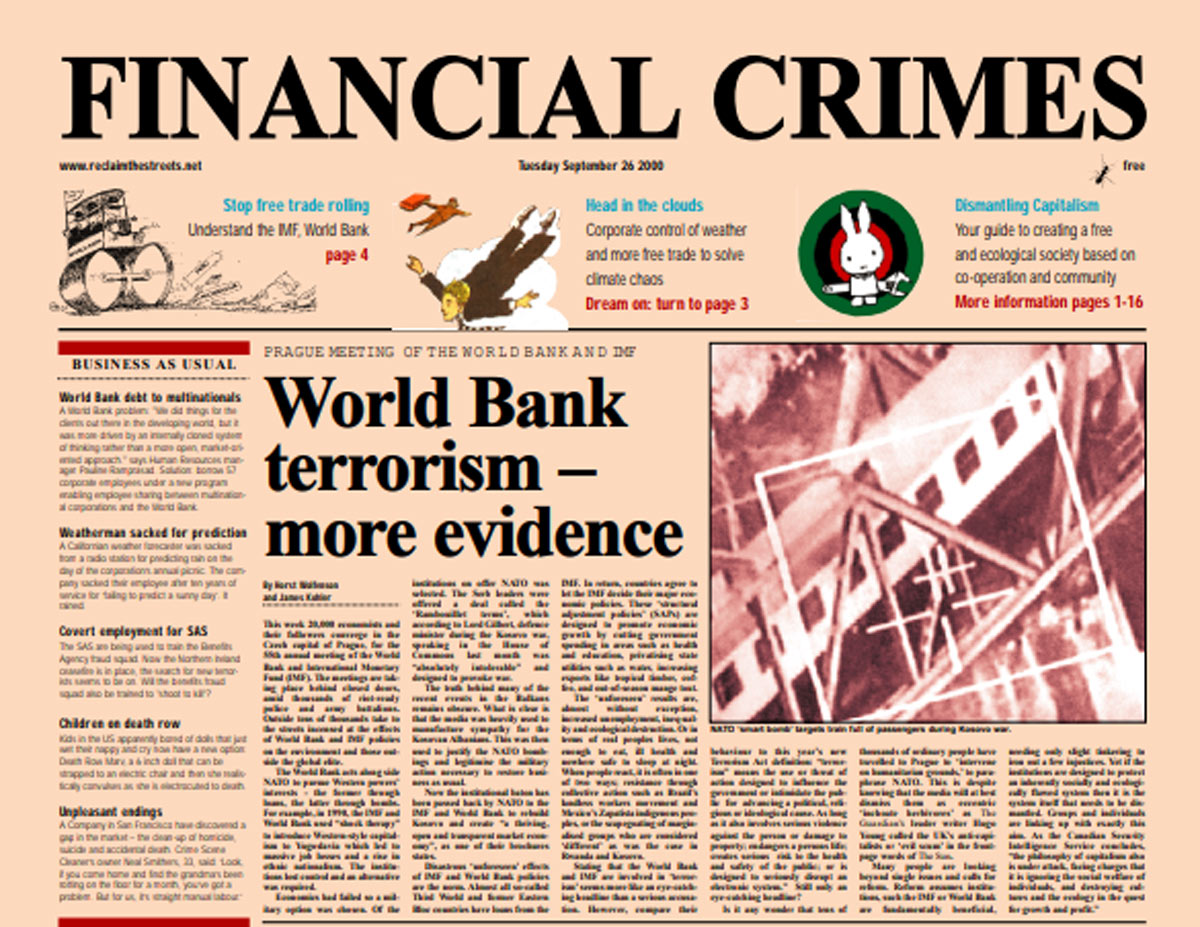
Uneasy Net As FC No Longer In The Pink
Service provider closes Financial Crimes website
25th October 2000
A spoof website designed by Reclaim the Streets activists has been closed down by its web server, Easynet Ltd, after legal threats from the Financial Times.
The www.financialcrimes.com * website was constructed to coincide with the distribution of around 20,000 copies of Financial Crimes, a well designed pink newspaper spoof of the FT distributed to rush hour commuters outside London Bridge station on Friday September 22. Following a complaint from lawyers representing the Financial Times, Easynet Ltd told the Financial Crimes team by e-mail that they considered their website breached a service code of copyright and that Easynet were afraid of being held legally responsible for the content of the site.
In a letter sent to Easynet by the Financial Times' lawyers, the FT claims that the availability of a pdf version of the spoof paper, available for download off the financial crimes website, "is calculated to damage the considerable and global goodwill attaching (sic) to our client's business."
The letter paid particular reference to the use of a cartoon of flying businessman on the front page and a photograph of real FT front page from June 19 with the headline: "Anti-capitalists lay siege to the City of London" which appeared on page 13. They also claimed that the use of pink pages throughout contributed to "a combination of elements confusingly similar to our client's proprietary get up (including the uniquely distinctive pink background which ahs been use by our client since 1893)".
"In other words," the FT lawyers told Easynet, "Your customer is committing the tort of passing off."
Although the actual grounds for copyright infringement are slight (the use of pink newspaper is not exclusive to the FT having been used by the Evening Standard, Independent on Sunday and Sunday Business), Easynet are the latest internet service provider to backdown against complaints rather than face legal challenges. The law regarding libel and copyright infringement on the web is still unclear as there is so little case law. In March 1999, Demon Internet were deemed to be responsible for defamation after being told by Lawrence Godfrey, a UK scientist, that he was being defamed in their newsgroup postings. Demon ran scared of the ruling and despite a commitment to appeal against the decision, the company backed down leaving a dangerous legal precedent which no-one has yet challenged.
In the year and a half since this high court ruling, a number of websites have been closed by ISPs simply because complaints about content have been received. Kingston Internet closed down a website critical of judges after being contacted by the Lord Chancellor, Derry Irvine; Webgenie Internet Ltd closed down a site about miscarriages of justice after being threatened by lawyer's representing a police officer and, perhaps most alarming of all, The Land is Ours site was closed down by Demon Internet after a single unnamed complainant told the ISP that the TLIO site contained false information about freemasonry.
Related Articles
Know FC? Know Comment - 28-Sept-2000
Links
A PDF of The Financial Crimes is available in the Libcom online archive - click here
http://www.financialcrimes.com *
* Wayback Machine link
